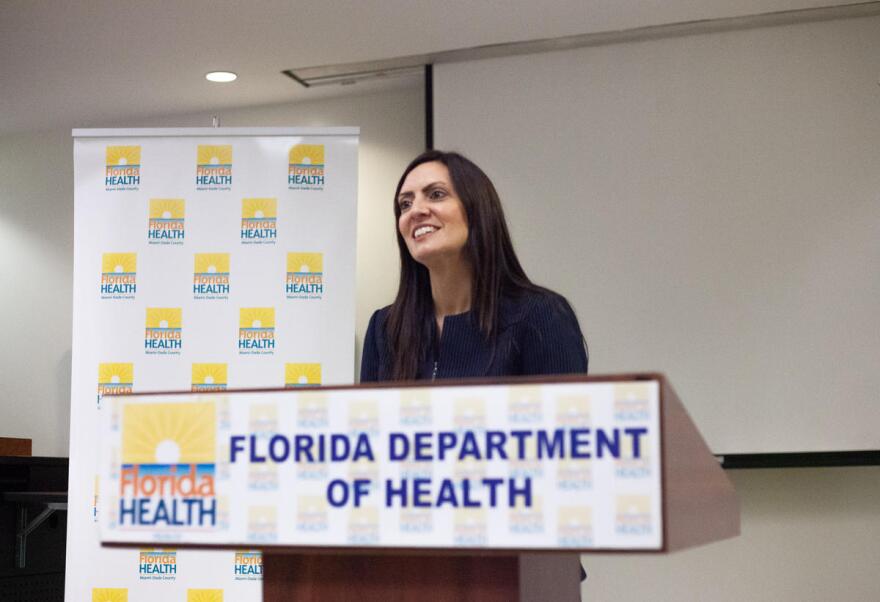State officials adressed how the Department of Health is responding tohuman trafficking in light of the Super Bowl at a press conference at the Department's offices in Miami on Monday.
Human trafficking encompasses forced sex and forced labor. Florida ranks No. 3 in the country for the total number of human trafficking cases reported, according to theNational Human Trafficking Hotline.
Miami-Dade County has the highest number of victims in the state.
Lt. Gov. Jeanette Nuñez said youth are particularly at risk.
In 2018, there were 767 human trafficking cases reported in Florida. About 1 in 5 cases involved minors. According to the United States Department of Justice, most victims of human trafficking are first used for sexual exploitation between the ages of 12 and 14.
“As a mother of three, that is a statistic I just cannot fathom,” Nuñez said. “So, with the Super Bowl we must be particularly vigilant.”
State Surgeon General Scott Rivkees said victims of human trafficking can experience things like broken bones, traumatic brain injuries and can contract sexually transmitted diseases. He added that they may also turn to alcohol and substance abuse to cope with their circumstances.
“In addition to the physical scars there is the psychological pain with goes along with this, and long after the physical scars have healed the psychological trauma still remains,” he said.
Rivkees said Department of Health employees are trained to identify victims of human trafficking, and that the Florida Department of Health in Miami-Dade County is part of the South Florida Human Trafficking Task Force.
It wasn’t clear from the press conference what the training entails, or how extensive it is. After being asked about the details of the training Rivkees said it was “extensive.”
“So, individuals who are in the front lines, clinicians, will be able to recognize sex trafficking. As part of the electronic medical record we actually have question sets embedded which are actually meant to recognize domestic violence, and sex trafficking and human trafficking as well.”
During the press conference a clinician who works for the Department'sSTD program asked Nuñez and Rivkees what to do if they suspect a person is being trafficked but that person denies it.
Nuñez said that is too often the case and that health personnel are trained to separate victims they encounter alongside a suspected perpetrator.
“Unfortunately many victims refuse because of the years of abuse and trauma to accept the help so I will tell you it is a very difficult population to deal with in terms of the response,” she said.
At the state level, Gov. Ron DeSantis signed into law a bill that requires training medical and hospitality workers on how to spot and report human trafficking.
Nuñez also cited partnerships with the truckers association, Uber, and the Florida Restaurant and Lodging Association.
“We will not allow Florida to be a stomping ground for these horrific perpetrators,” she said.
Copyright 2020 WLRN 91.3 FM. To see more, visit . 9(MDAyMTYyMTU5MDEyOTc4NzE4ODNmYWEwYQ004))


